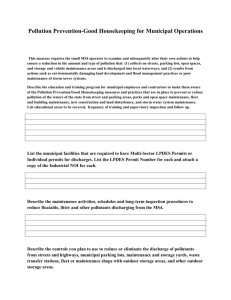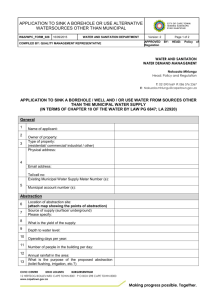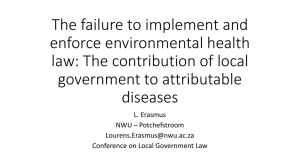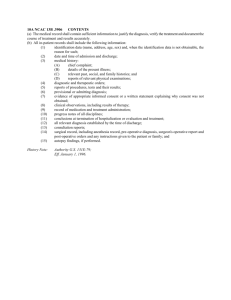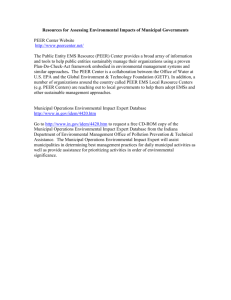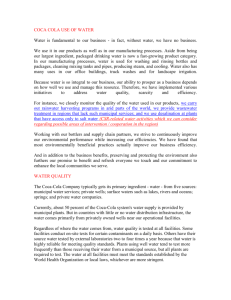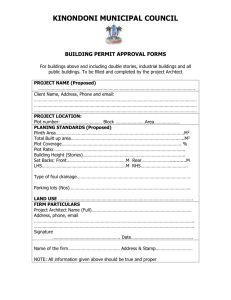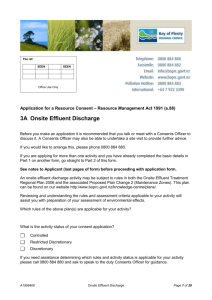Pollution Control Boards
advertisement
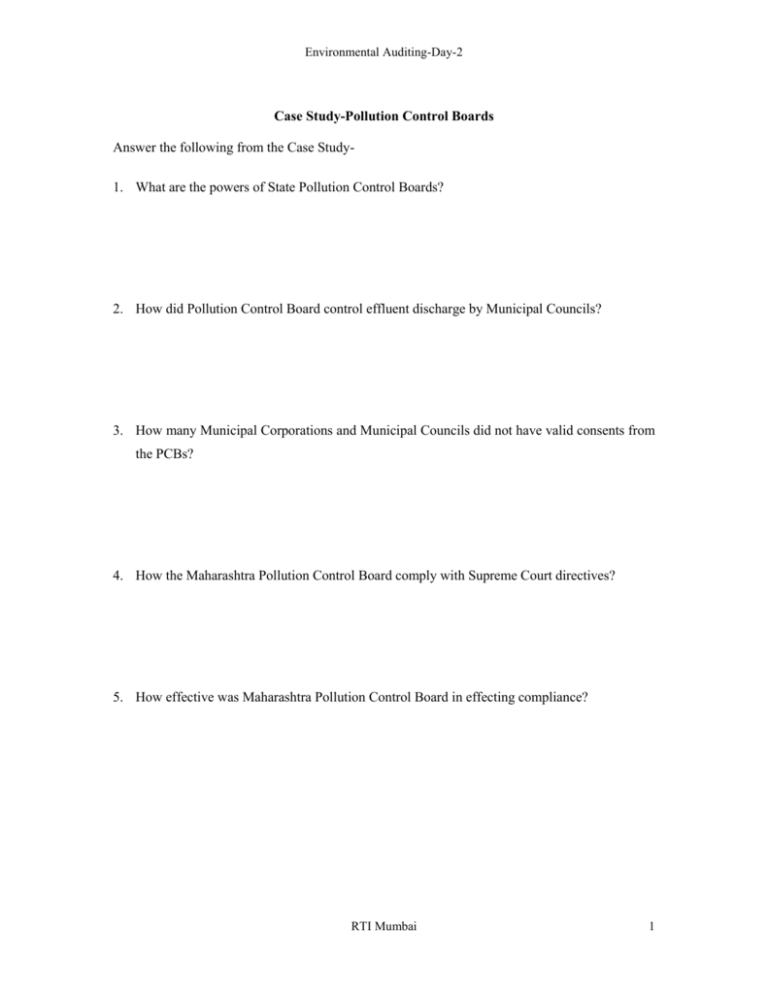
Environmental Auditing-Day-2 Case Study-Pollution Control Boards Answer the following from the Case Study1. What are the powers of State Pollution Control Boards? 2. How did Pollution Control Board control effluent discharge by Municipal Councils? 3. How many Municipal Corporations and Municipal Councils did not have valid consents from the PCBs? 4. How the Maharashtra Pollution Control Board comply with Supreme Court directives? 5. How effective was Maharashtra Pollution Control Board in effecting compliance? RTI Mumbai 1 Environmental Auditing-Day-2 Suggested Solution-Pollution Control Board-Case Study Ans-1. Powers include issue of consents to Industries to establish and to operate, issue consents to local bodies to discharge domestic effluents (Sewerage water) into the water resource, monitoring/watching compliance to the consent conditions and taking control measures whenever deviations/deterioration are observed in the discharged effluents and water bodies. Ans-2. The Board did not have data on effluent discharged by 231, Municipal Councils in the State. A meager 1 percentage of effluent discharge was treated before discharge, the balance 99 percent of the effluent was discharged without treating. This is very unfortunate. Ans-3. 13 Municipal corporations out of 15, 218 Municipal Councils out of 231 did not have proper consent letters for discharge. Ans-4. In the writ petition field by Shri Almitra H Patel vs Govt. of India and others, the Supreme Court directed all PCBs to ensure that the Municipal bodies under their jurisdiction seek consent and comply with the consent conditions. MPCB issued directions to 205 local bodies and interim direction to a Corporation and legal action was initiated against the 3 local bodies during 1997-98. It was also decided (October 1998) to initiate legal action against the local bodies for non-compliance of directions issued by them. Ans-5. The status of compliance of conditions of consent by Industrial units was as follows: 29 large scale Industries, 31 medium scale Industries and 1948 small scale Industries failed to comply with consent conditions as of March 2000 in Maharashtra (nearly 10%). RTI Mumbai 2
